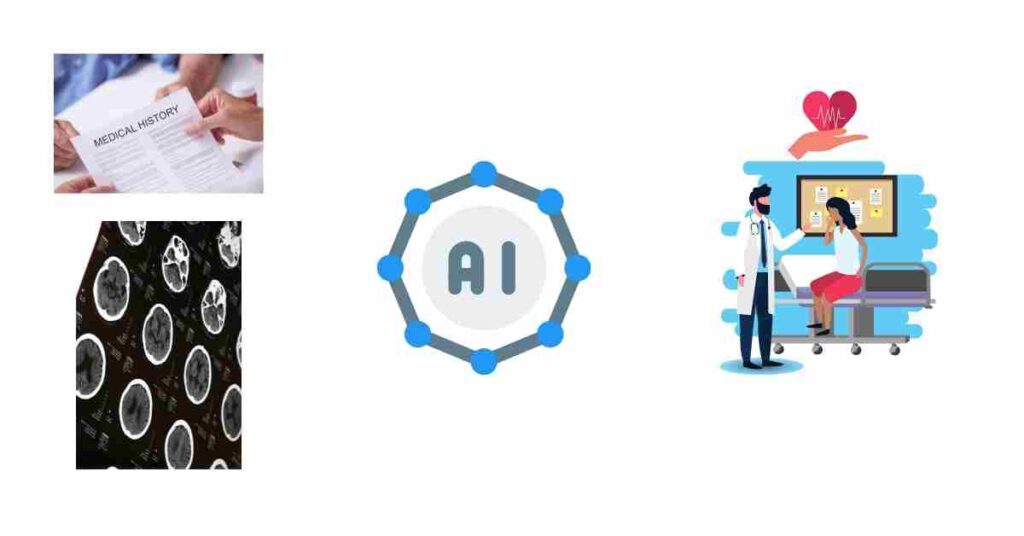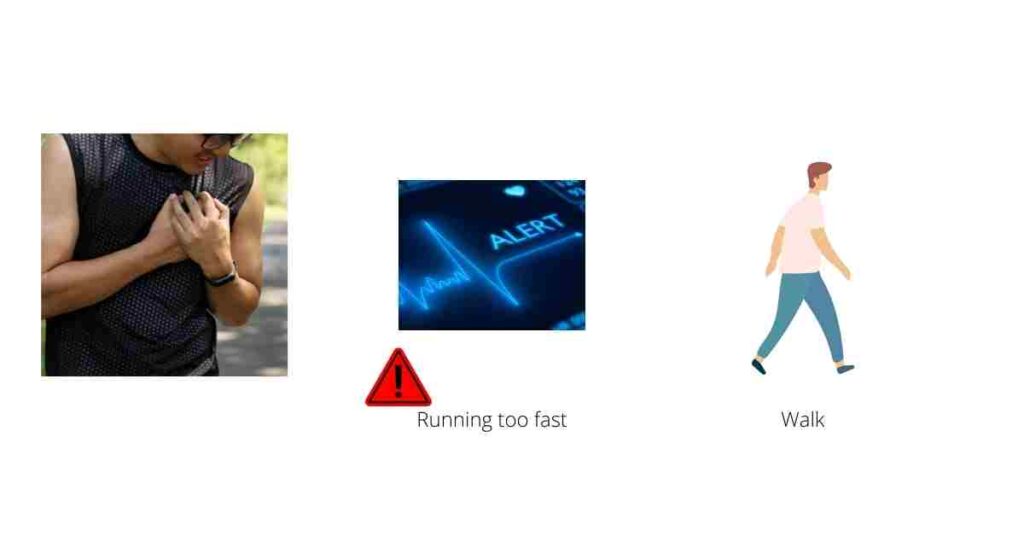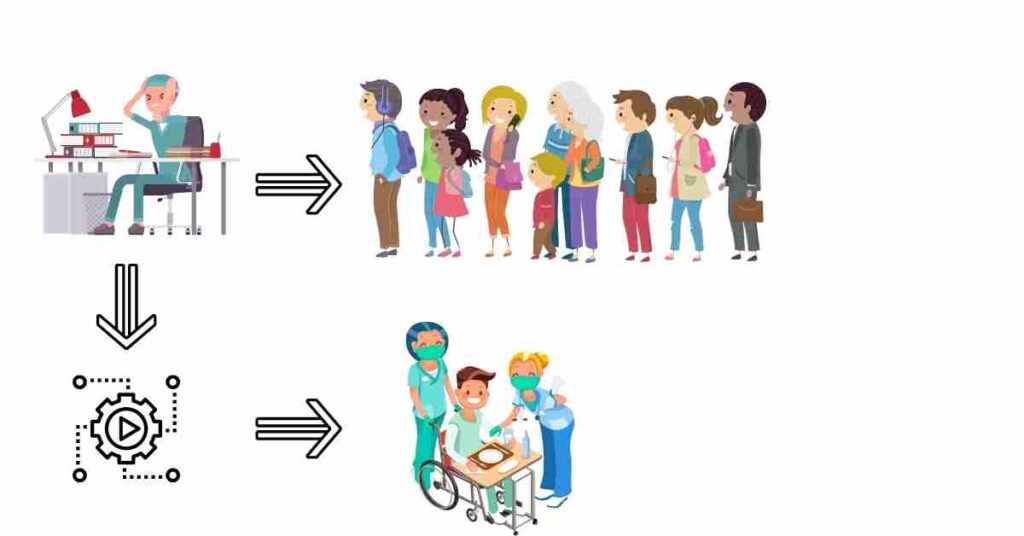How is artificial intelligence revolutionizing healthcare?
As the healthcare industry continues to advance and find ways to deliver better services to patients, it is facing a myriad of challenges.
In particular, there’s the rise of big data scattered across multiple systems including those of patients, payers, and providers. This, therefore, means there is no single source of truth which can be used to improve both patients’ and healthcare providers’ experiences.
However, with the rapid growth of digital transformation, new technologies, such as AI are showing significant progress in transforming legacy models to enable provision of affordable, accessible, and quality healthcare services.
In fact, according to a survey by Statista in 2020, 90% of large healthcare organizations surveyed have an AI automation strategy compared to 53% in 2019.
Artificial intelligence simplifies healthcare processes, such as administration by performing human tasks, but within a shorter time frame and at a lower cost.
In this article, we’ll go through 5 revolutionary artificial intelligence trends in healthcare.
Let’s get started.
1. Telemedicine
One of the prevalent challenges in healthcare is the long waiting periods patients have to experience when making queues to access physician services.
In addition to that, periods such as the COVID-19 pandemic that have led to travel restrictions and require social distancing can hinder many patients from receiving the help they need while equally keeping healthcare providers safe.
How, then, can patients and physicians win in such situations?
Well, through telemedicine.
Although telemedicine was originally designed to serve patients in remote areas, its use has widely been adopted due to its ability to provide convenience for patients and physicians alike.
In fact, a report by Allied Market Research shows that the global telemedicine market generated $40.20 billion in 2020 and is expected to reach $431.82 billion in 2030.

With the ascent use of AI innovation, hospitals can lessen wait times by patients for in-person visits.
Through technologies such as predictive analytics, hospitals can now discover specialists quickly for telemedicine patients wherever they are based.
For instance, AI can augment physicians in making medical decisions by coursing inquiries to physicians with the best results of symptoms being experienced by patients instead of sending them to the first available doctor.
In addition to that, through robotic process automation, eldercare-assistive robots can monitor elderly patients remotely by imitating eye-to-eye interactions between doctors and patients. They do so by moving semi-independently and performing tasks while sensing their surroundings.
As a result, smart machines reduce the expense of delivering healthcare while improving patients’ quality of life.
2. Seamless Diagnosis
Large patient caseloads and incomplete medical histories are among the leading causes of deadly human errors when it comes to their diagnosis.
In fact, according to research by University of California San Francisco, medical error and misdiagnosing illness accounted for 10% of all US deaths in 2015.
Some of the challenges associated with diagnosis include:
- Difficulties in determining error when the disease is still evolving over time.
- Determining the severity and likelihood of disease diagnosis in hindsight.
- Accounting for a balance between overaggressive pursuits and underdiagnosis.
Because some of the significant errors result from bias by physicians or lack of deeper insight into patients’ symptoms, technologies such as AI are being adopted for seamless diagnosis processes.
Artificial intelligence is a rich realm of data, analytics, deep learning algorithms, and neural networks that are being used to help with medical diagnosis.

For instance, radiologists have to juggle with large volumes of images from X-Rays and CT scans and provide accurate insights at high speeds that were previously unheard of.
AI-technologies that leverage deep learning solutions scan through the large volumes, flagging those that are of concern. Radiologists can then analyze these images and detect illnesses fast and accurately.
In addition to that, through predictive analysis, AI-powered systems can detect diseases such as stroke before they occur.
According to a clinical study by Aidoc, a convolutional neural network model developed by Aidoc was able to automatically detect Intracranial Proximal vessel occlusion on computed tomography angiography.
3. Pain Management
Chronic pain is a common experience among patients, especially when it comes to musculoskeletal disorders and chronic illnesses like cancer.
In fact, according to a Morbidity and Mortality weekly report, 20% of adults in the U.S suffer from chronic pain.
Unfortunately, healthcare providers and researchers are only realizing it now that over-the-counter painkillers and powerful opioids may not reduce certain kinds of chronic pain or improve the quality of life of patients.
If anything, some painkillers, especially opioids are highly addictive and also, with their excessive use, painkillers can lose their potency.

The best way to go about this challenge is by addressing the patient’s mental health state to gauge their beliefs about pain and how those beliefs affect their behaviors.
New AI-based technologies can, therefore, assist therapists in monitoring patients’ mental health and quickly spot warning signs of severe conditions.
According to research by the Northwestern University faculty and alumni, artificial intelligence can be applied to physiological information, such as pulse rate, blood pressure, respiratory rate, and body temperature in patients experiencing chronic pain to monitor changes in pain and abnormal fluctuations.
In addition to that, AI-powered symptom tracking apps can flag less-obvious patterns that may accelerate pain. This way, patients can understand pain patterns and learn how to pace themselves.
4. Administrative Applications
In the healthcare industry, a lot of time is spent on administrative processes, such as claims processing, clinical documentation, and medical records management instead of patient engagement.
Actually, according to a Wide Physician survey, 96% of the respondents reported spending 24% of their working hours on administrative duties, of which two-thirds stated that it negatively impacted their ability to deliver high-quality care to patients.
One of the significant challenges is in claims processing where providers have to collect patient insurance information and submit it to the payer for processing.
Cross-referencing this data to ensure it is accurate takes a lot of time, ultimately slowing down bill payments.
Among the ways artificial intelligence is revolutionizing healthcare is by automating most administrative tasks.

Through smart assistants like AI-based chatbots which leverage natural language processing, healthcare providers can hold conversations with their patients to gauge how they are fairing.
Physicians are also using chatbots to make appointments with patients and refill prescriptions to better healthcare services.
Through AI, administrative tasks are also being automated to avoid overlapping duties by automating data entry, scheduling surgeries,and creating alerts so that staff can attend to patients effectively.
In addition to that, AI technologies such as machine learning are also being used to speed up claims processing by matching data across different databases to verify if the information filled out by patients is true.
5. Surgical Robots
How is artificial intelligence improving surgical experiences?
Dealing with a medical condition that requires surgery can be stressful. You have to make decisions about when to have the procedure and on top of that, worry about how long it will take before you can get back to your usual social and work life.
Often, these challenges are determined by the type of surgery you go for. This could either be open, laparoscopy, or robotic.
However, although there are times when open surgery is a more effective and safe approach, it has its challenges which include:
- Large scars due to bigger incisions.
- Long recovery periods.
- High risks of complications, such as excessive bleeding and infection.

One of the revolutionary artificial trends in healthcare is the introduction of surgical robots.
Through high definition 3D imaging for better view, surgeons use the power and precision of high tech robots to make minimally invasive incisions instead of using their hands to manually control tools and cameras.
By leveraging machine learning capabilities, AI-powered surgical robots increase the precision during surgeries, ultimately resulting in less damage and scarring, reduced blood loss, and speedy recovery of patients.
Sandi tells her successful story of robot-assisted surgery where she slept and woke up after the surgery and didn’t experience pain compared to her previous open hysterectomy which had serious complications.
Conclusion
Artificial intelligence is changing the healthcare industry for the better.
It has the ability to analyze large volumes of data and reveal patterns that are too subtle and complex for healthcare providers to detect, ultimately improving both the physicians’ and patients’ experiences.
Actually, artificial intelligence in healthcare is projected to grow at a compounded rate of 44.9% according to reports by Markets and Markets.
Having gone through some of the revolutionary artificial trends in healthcare like in administrative applications, pain management, and telemedicine, I hope you can advance medical processes in your institution to reduce the workload and get accurate insights on patient health.
Ready to get started?
I would suggest introducing surgical robots to assist in surgical procedures by increasing precision to ensure patients have shorter recovery periods without complications.

![5 Innovative Applications of Artificial Intelligence in Manufacturing [2021]](https://geokongo.com/wp-content/uploads/2021/09/Applications-of-Artificial-Intelligence-in-Manufacturing-2021-1024x536.jpg)


